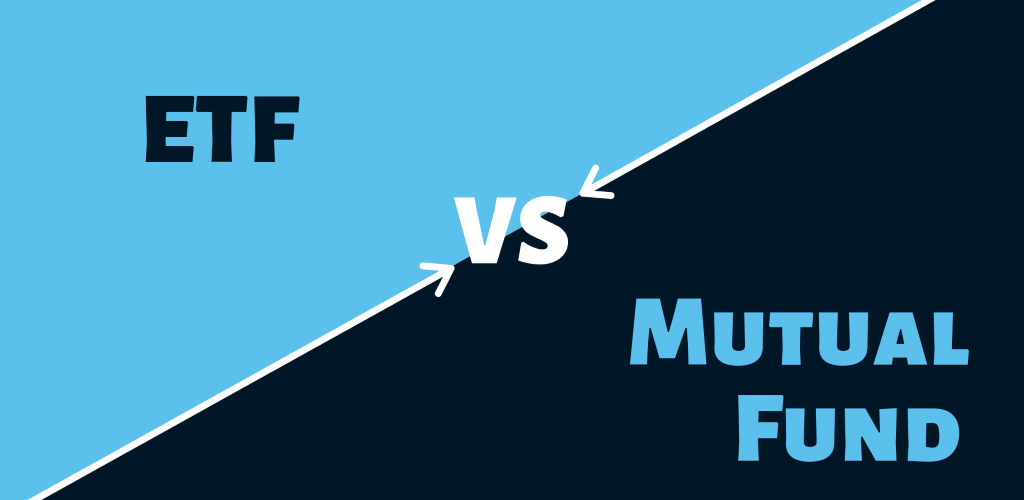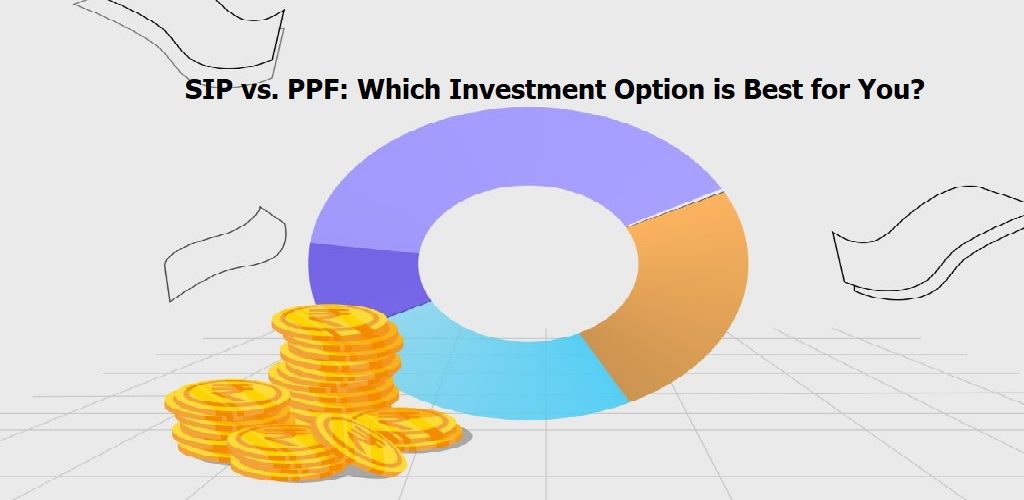Mutual funds and exchange-traded funds (ETFs) are two well-liked investment options in India that give users access to a diverse range of securities. The differences between mutual funds and exchange-traded funds are quite small. The fact that you can purchase an ETF share through a brokerage, much like stocks, rather than a fund management business that offers mutual funds, is one of the primary distinctions between the two.
Since index funds manage the majority of ETFs, it can be assumed that professional managers do not select the investments to be held. Rather, these funds resemble an investing list. The buyer’s convenience is the deciding factor when selecting between an ETF and a mutual fund. Purchasing an ETF is a fairly simple and convenient process if he or she already has a brokerage account. An investor should use a mutual fund if they do not already have a brokerage account.
What is ETF?
Exchange-traded funds (ETFs) pool funds from multiple participants to invest in a diversified range of securities. However, it’s important to note that ETFs themselves can also be considered a form of mutual fund. ETFs can be linked to various assets such as equities, debt, gold, or a mix of these. Operating as a hybrid of stocks and mutual funds, they share structural and management similarities with mutual funds. The key distinction lies in their traceability on stock exchanges, providing investors with the flexibility to buy and sell ETF shares throughout the trading day, similar to individual stocks.
They adhere to the idea of investing passively. According to this theory, the ETF attempts to imitate the performance of a specific index by mirroring it. This is not the same as active investing, where the goal is to outperform the returns of the benchmark index. ETFs function similarly to closed-ended mutual funds in that all funds are raised front and then invested in equities that closely resemble the benchmark index, with no more money being allowed to be added.
What Distinguishing Features and Benefits Does ETF Offer?
The following are the salient features and benefits of ETFs.
- Liquidity
ETFs offer the flexibility of being traded on stock exchanges at market prices throughout the trading day. Investors can buy or sell shares promptly when the market opens or at any point during the day, providing a level of flexibility that aligns with varying investment strategies and market conditions. This very aspect distinguishes ETFs from traditional mutual funds, offering investors the convenience of executing transactions at their preferred times.
- Lower Expenses
ETFs typically follow a passive management approach, where the portfolio manager establishes the fund and adopts a more hands-off strategy compared to a mutual fund manager. Due to the reduced need for active management, ETFs often feature lower expense ratios in comparison to mutual funds. This cost efficiency is a result of the streamlined management process, making ETFs an attractive option for investors seeking a more cost-effective way to gain exposure to a diversified portfolio without the higher expenses associated with active fund management.
- Tax Efficiency
ETFs provide investors with unique tax advantages, leveraging the creation and redemption process to minimize capital gains distributions. This particular strategy sets ETFs apart from mutual funds, as it enables investors to potentially reduce their tax liabilities. Unlike mutual funds, which may incur capital gains distributions due to investor redemptions, ETFs can manage capital gains more efficiently, contributing to a tax-efficient investment approach for those seeking to optimize their tax outcomes.
- Diversification
ETFs are crafted to provide diversification by mirroring a specific index or asset class. When an investor opts for an ETF, they gain exposure to a broad range of assets without the complexity of individually purchasing multiple stocks or securities. In a broad sense, investing in an ETF helps mitigate risk compared to the potential volatility associated with holding a single stock.
- No Minimums
ETFs often have no minimum investment requirements, making them highly accessible to a broad range of investors, particularly those who are just starting with limited upfront capital. This accessibility creates an inclusive investment environment, enabling new investors to test the waters without facing significant financial barriers.
What are Mutual Funds?
A mutual fund is a financial instrument that pools money from investors to purchase stocks, bonds, and other assets collectively. Established by eligible companies, known as Asset Management Companies or Fund Houses, mutual funds gather investor funds, promote the funds, manage investments, and facilitate transactions. At its core, a mutual fund consists of funds contributed by numerous individuals or investors who come together to invest collectively.
Mutual funds generally come with higher minimum investment requirements compared to ETFs, and these minimums can vary based on the specific company and fund scheme. Unlike the passively managed nature of many ETFs, most mutual funds are actively managed by experienced fund managers or teams. These professionals make strategic buying and selling decisions to potentially generate higher returns for investors. However, the active management approach also entails higher costs, as it demands additional effort, processing time, and expertise.
What are the Features and Benefits of Mutual Funds?
Here is the list of the features and benefits of mutual funds.
- Professional Management
Mutual funds are overseen by professional fund managers who actively monitor the markets and continually make investment decisions aligned with the fund’s stated objective. This approach alleviates the need for investors to conduct extensive research and engage in individual stock picking, as the fund manager takes on the responsibility of navigating the market and making strategic investment choices.
- Convenience And Simplicity
Investing in mutual funds is notably simpler compared to the complexities often associated with stock market investments. To get started, all you need to do is approach a bank or a non-banking financial institution, and they can promptly set up a mutual fund account for you. Alternatively, you can also establish a mutual fund account from the convenience of your home.
After the verification of your Know Your Customer (KYC) documents, you can initiate investments using online accounts or mobile applications, providing a hassle-free and accessible way to enter the mutual fund market.
- Portfolio Diversification
Investing in mutual funds offers a key advantage of obtaining a diversified portfolio that includes various types of equities and other financial instruments. Depending on the fund’s objective, mutual funds can provide proportionate exposure to different asset classes, including equities, debts, or other options like gold and real estate. This diversification strategy helps spread risk and can enhance the stability of the overall portfolio, aligning with the investment goals outlined in the specific mutual fund scheme.
- Transparency
Every mutual fund provides a Scheme Information Document, easily accessible on the fund house’s website, offering comprehensive details about its holdings, fund manager, and other essential information. Moreover, the Net Asset Value (NAV) of the portfolio is published daily on both the Asset Management Company’s (AMC) site and the Association of Mutual Funds in India (AMFI) site. This transparency allows investors to readily track the mutual fund’s portfolio, facilitating informed decision-making and keeping investors updated on the fund’s performance.
- Liquidity
Investors can redeem their mutual fund investments on any business/working day at the Net Asset Value (NAV) of the day of redemption. The redemption process typically results in the funds being credited to the investor’s bank account within 1-3 days, depending on the type of mutual fund.
It’s important to note that close-ended funds permit redemption only at maturity, while ELSS (Equity Linked Savings Scheme) mutual funds have a lock-in period of three years, during which the funds cannot be redeemed.
- Tax Savings
Investments in mutual funds offer a tax benefit under Section 80C of the Income Tax Act, 1961, allowing individuals to avail deductions for amounts invested up to Rs. 1,50,000. This provision is a valuable aspect of financial planning, enabling investors to optimize their tax liability.
Furthermore, mutual fund investments can become tax-efficient when held for a longer term. Gains from the sale of mutual fund units held for more than one year are typically categorized as long-term capital gains (LTCG).
- Well Regulated
In India, the mutual fund industry operates under the regulation of the Securities and Exchange Board of India (SEBI), the capital market regulator. SEBI establishes and enforces stringent rules and regulations that mutual funds must adhere to. These regulations are designed to ensure various aspects such as investor protection, risk mitigation, liquidity management, and fair valuation practices.
Mutual Funds vs ETF: The Difference
Now that you’ve read about the detailed overview of mutual funds and ETFs, let’s look at their key differences:
| Parameters | Mutual Funds | ETFs |
| Trading And Liquidity | At the end of the day, only the NAV price is available for buying or selling mutual funds. | Since exchange-traded funds (ETFs) are traded on stock exchanges just like stocks, their liquidity is increased. |
| Investment Approach | Since mutual funds are actively managed, fund managers choose which securities to buy and sell depending on their research and view of the market. | Because ETFs are passively managed, they are less risky and more transparent because the fund replicates a specific index. |
| Cost Structure | There are greater management costs for mutual funds. | Expense ratios are lower for ETFs. |
| Taxation | Mutual funds do not save as much on taxes. | ETFs have a lower capital gains tax, making them more tax-efficient. |
| Selling Time Limit | A penalty or punishment is often imposed by mutual funds for selling shares before the designated time. This 90-day window is often applied to share sales after the date of acquisition. | There is no set purchasing or selling window for ETFs. Investors are free to purchase or sell them at any moment. |
| Management | Mutual funds track the index and are actively managed by teams or knowledgeable fund managers. In this instance, the assets are selected so that they outperform the index and attain higher returns. | Indexes are tracked by ETFs. They make an effort to mirror the index’s price movements and returns. |
ETF vs Mutual Funds: Which One is Better?
If you’re aiming to build a diversified investment portfolio, both ETFs and mutual funds offer excellent options. Your choice between the two depends on factors such as the time horizon, risk tolerance, and financial goals. Some investors prioritize liquid investments over long-term commitments.
While ETFs and mutual funds share similarities and provide diversification, a judicious combination of both can enhance your investment portfolio. Before taking any action, it’s crucial to understand the workings of both fund types, evaluate your risk tolerance, and, if needed, seek professional advice to ensure you’re making informed investment decisions. Investing more is beneficial, but investing wisely is paramount to long-term financial success.
Frequently Asked Questions
Indeed, investors in exchange-traded funds (ETFs) receive two primary types of dividends: qualified and non-qualified dividends. On the other hand, dividends are the distributions you will receive if you own shares of an exchange-traded fund.
Yes, investors have been using index funds more and more in recent years since they offer the opportunity to acquire a broad range of equities at a lower risk and with more diversity. For greater returns, this is the reason that a lot of young investors, particularly novices, put their money into index funds.
To put it simply, that completely depends on the specific ETF. However, because ETFs are traded on stock exchanges and their value varies during the day based on market circumstances, they are generally riskier than mutual funds.







